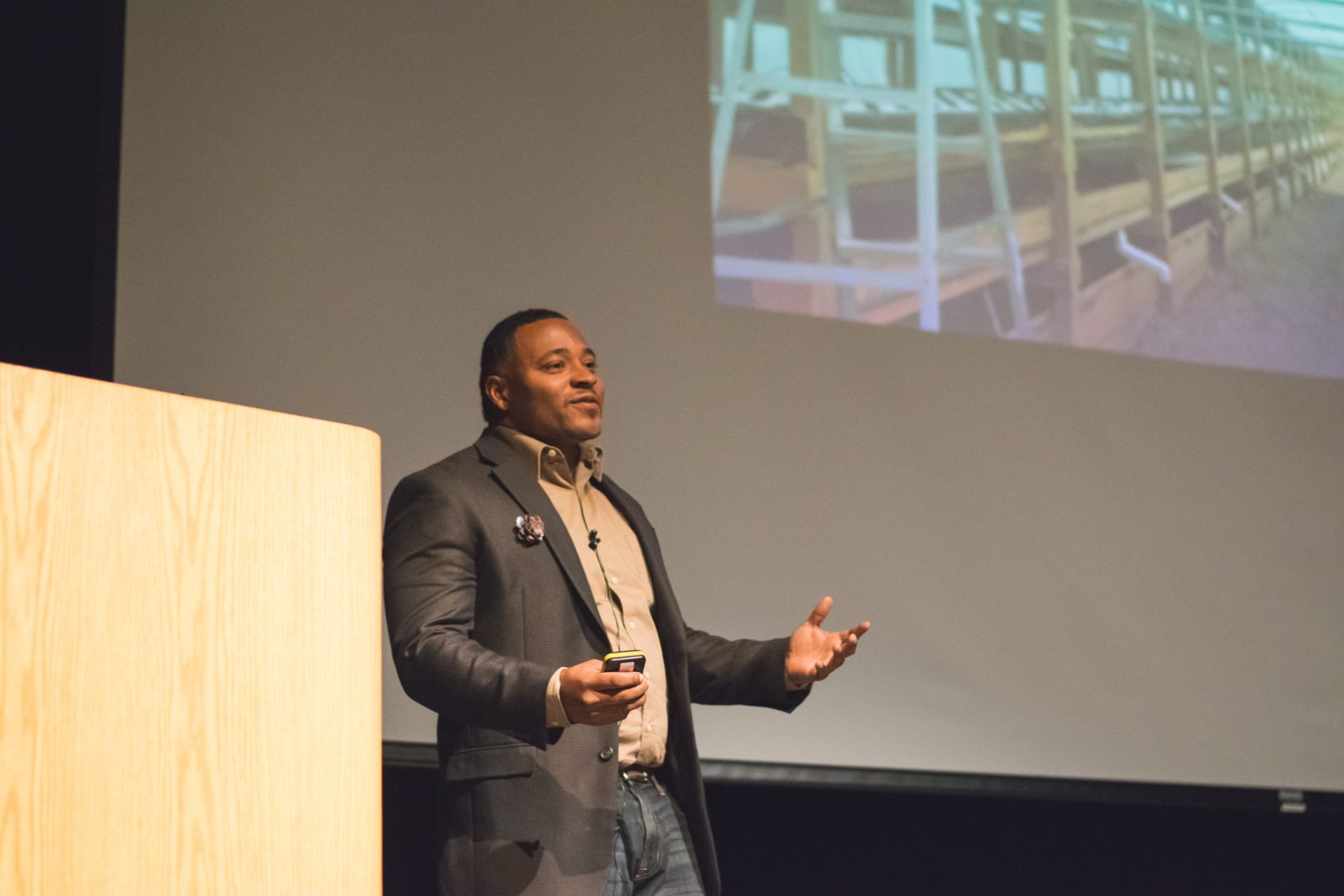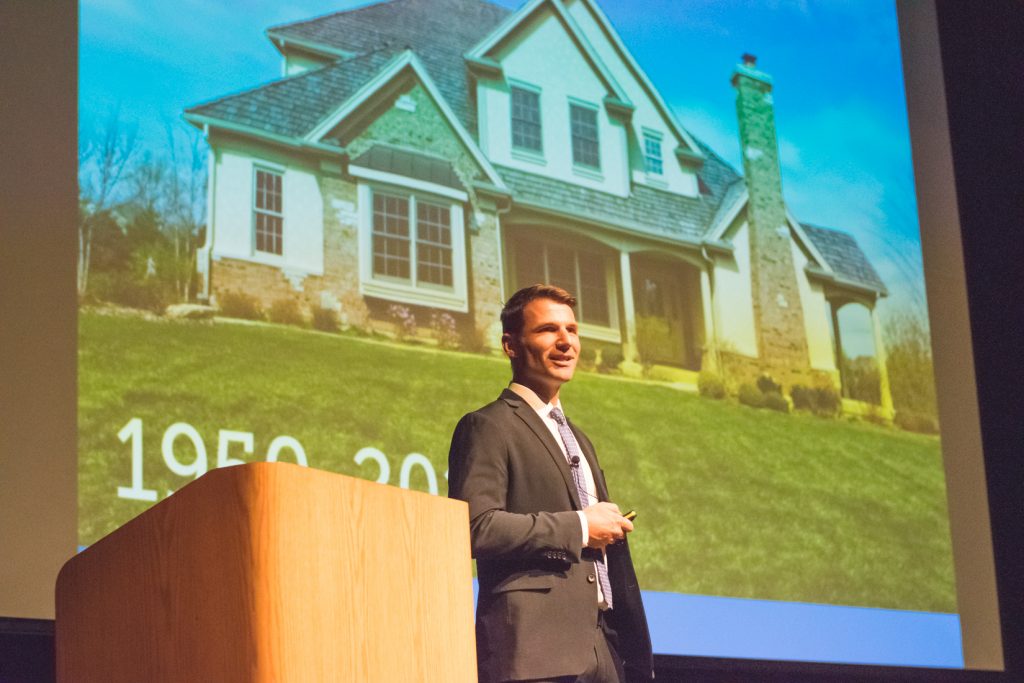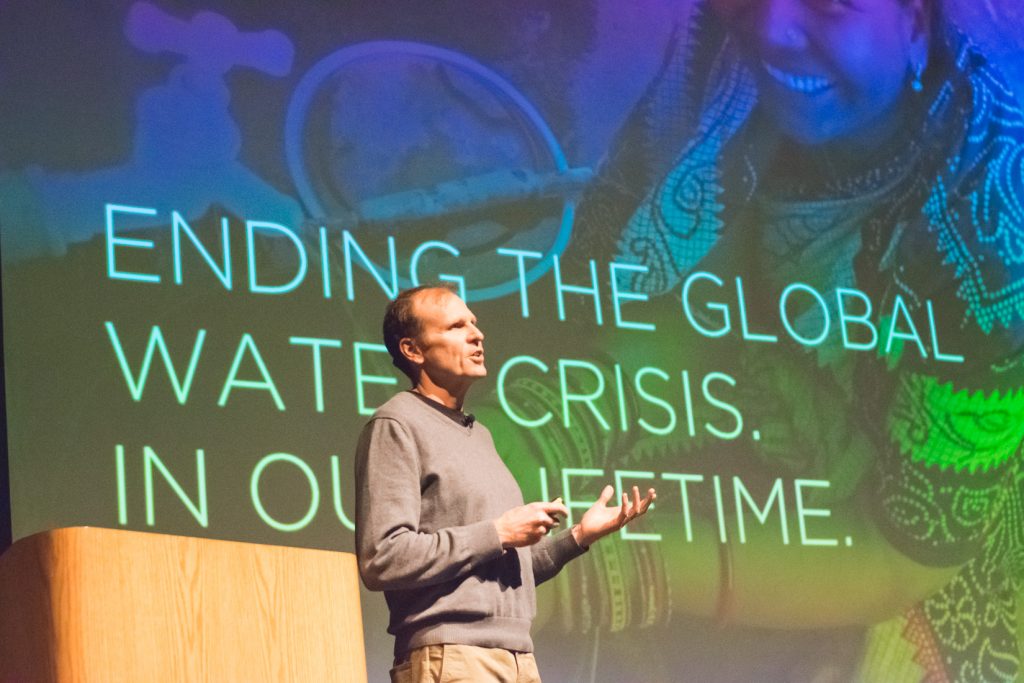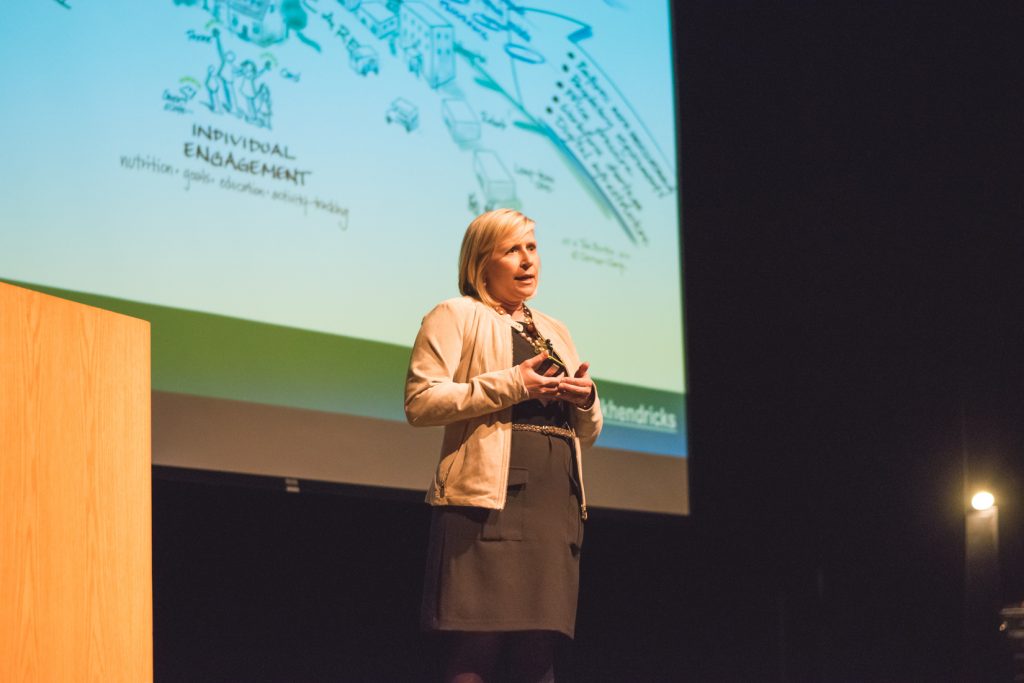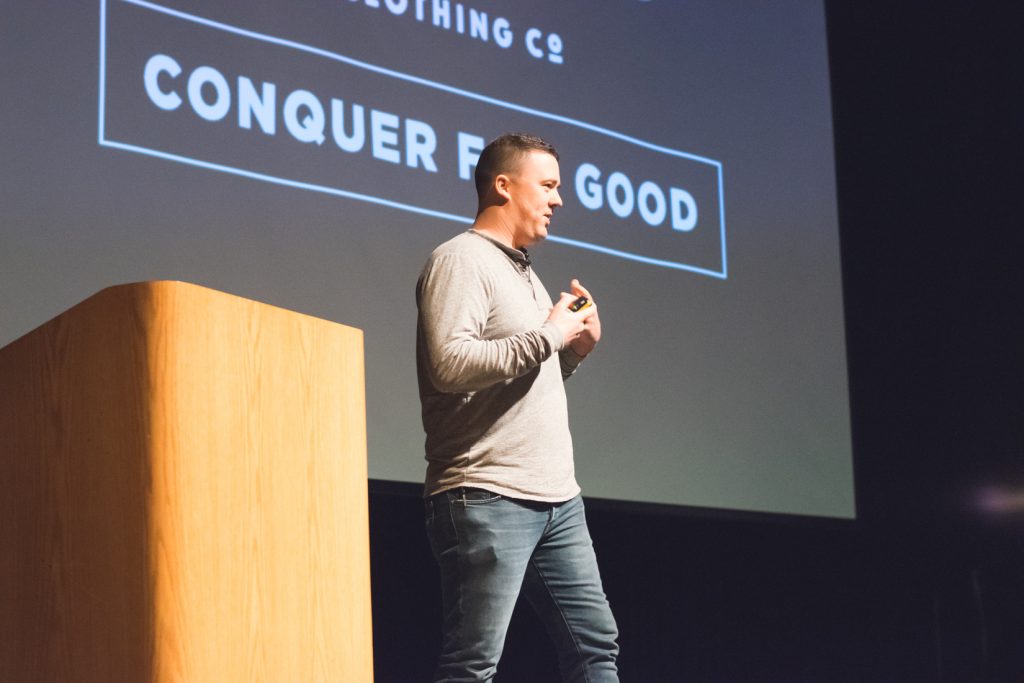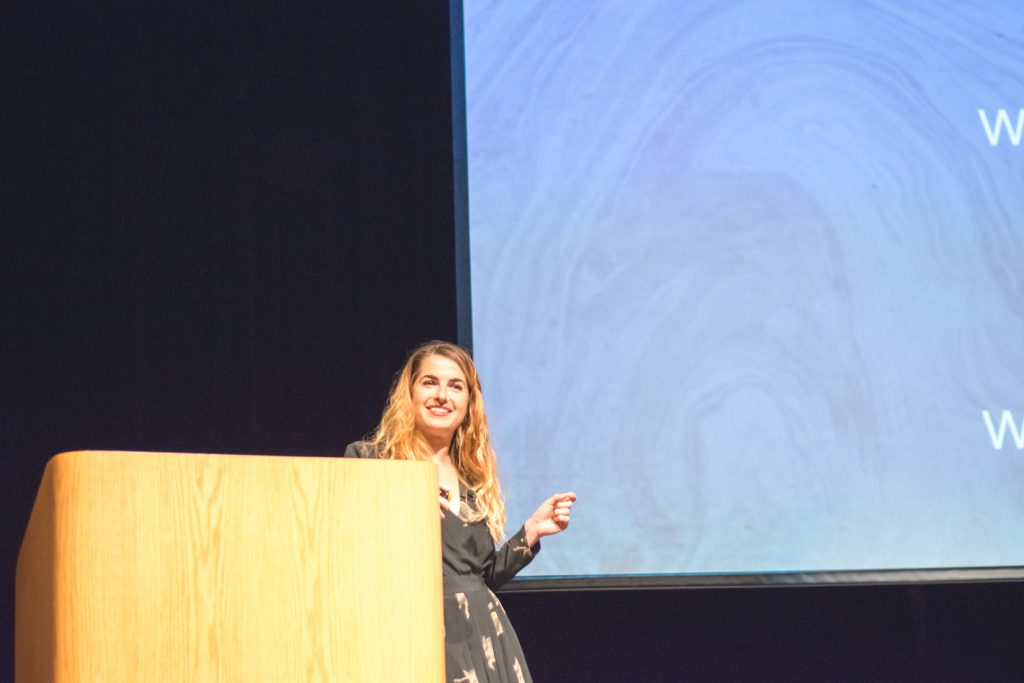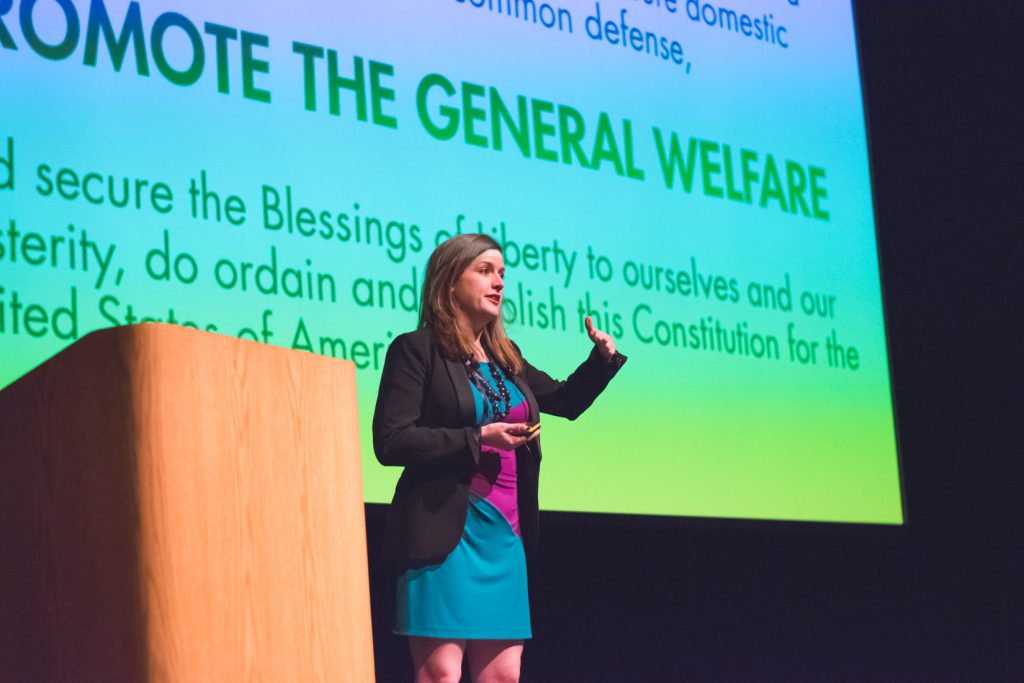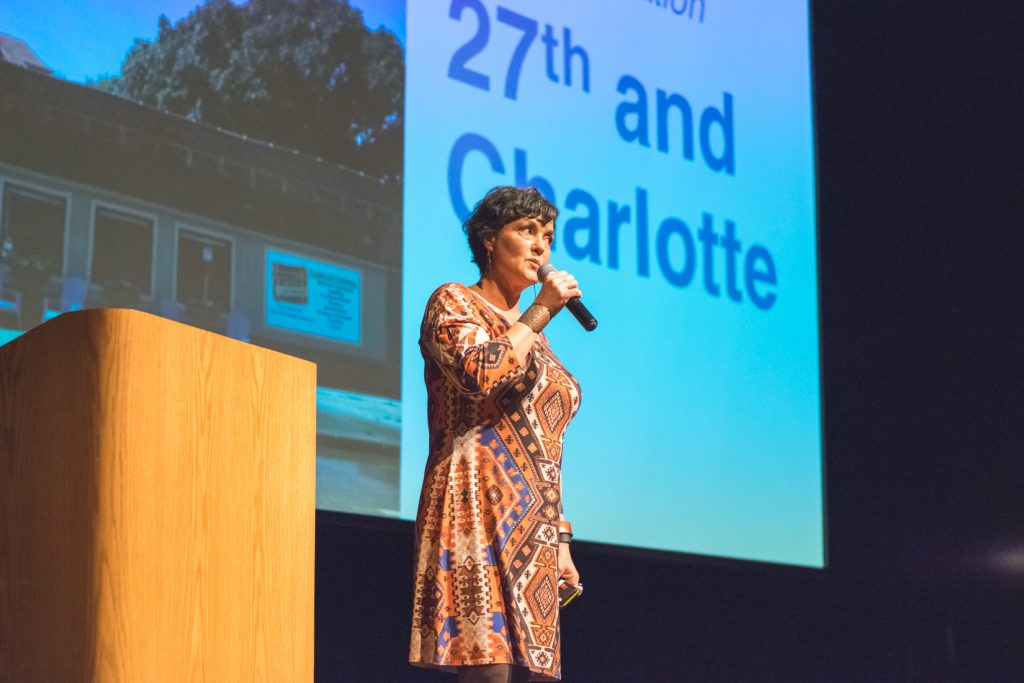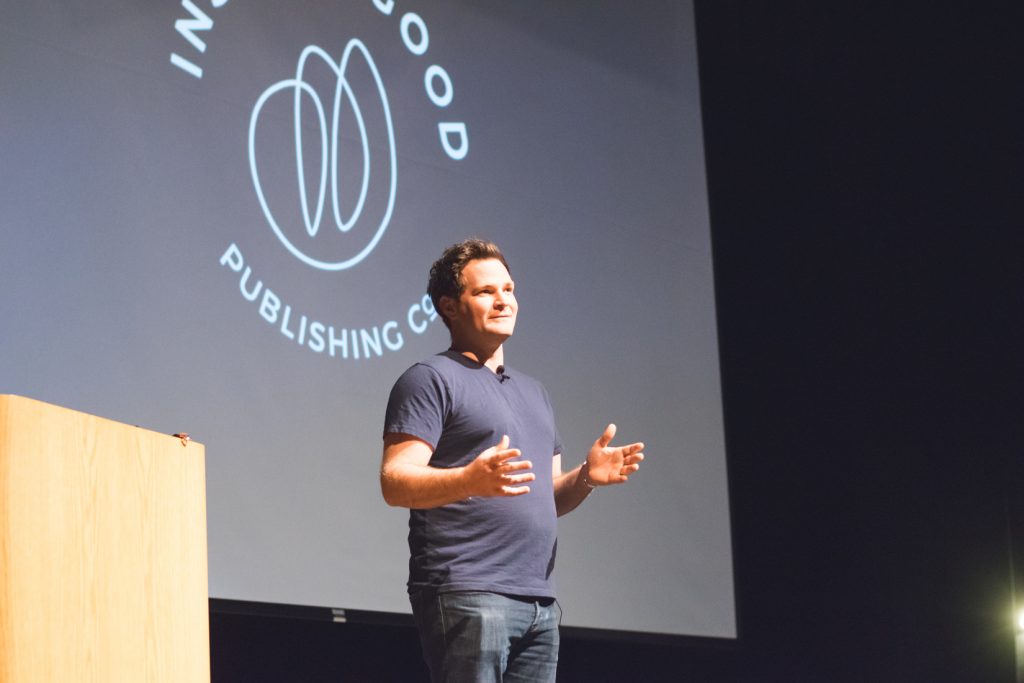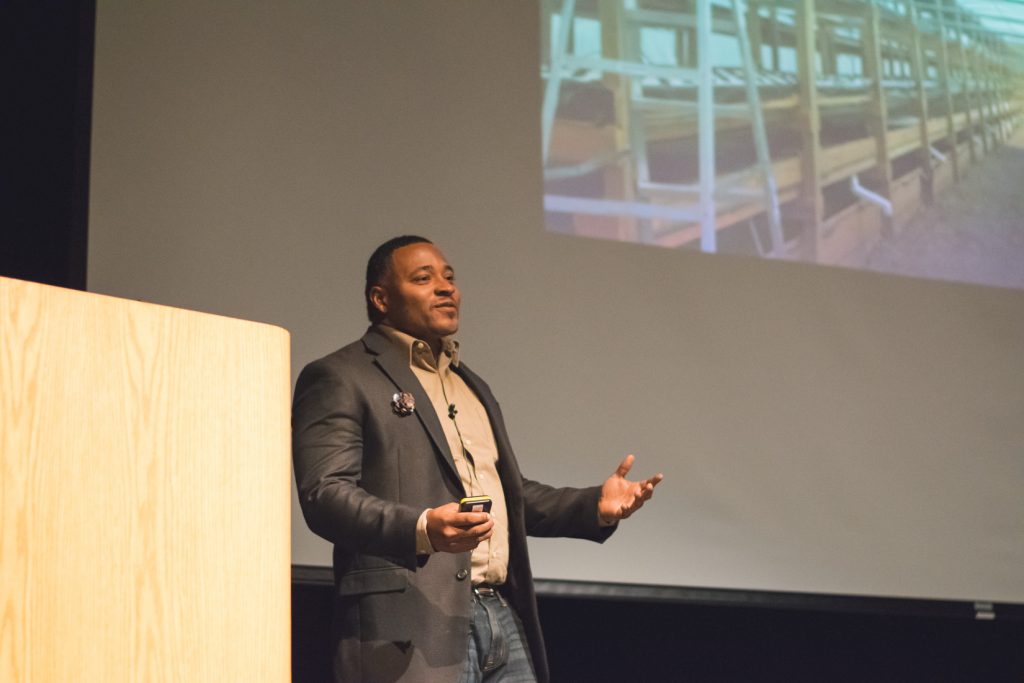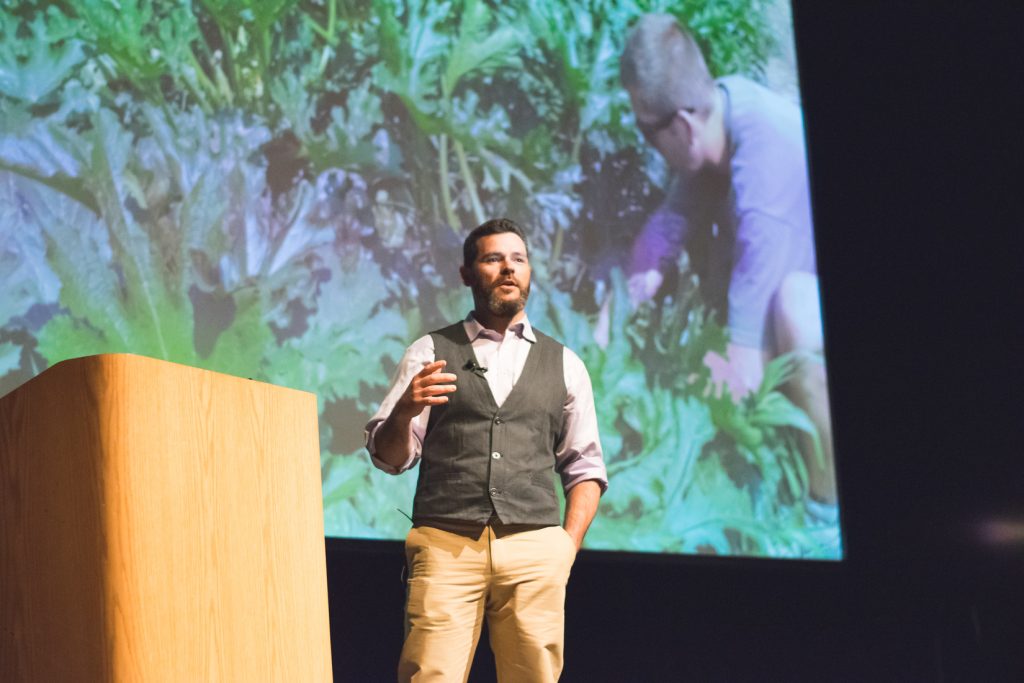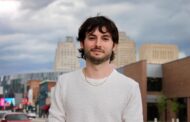It’s been said that the best things in life are free.
But what social entrepreneurs know well, is that it’s not that simple — nearly everything in life comes at a cost, including the positive impact they’re trying to make.
And at Thursday’s Conquer for Good conference, a variety of innovators shared how they’re working to make the world a better place through social entrepreneurship. Social entrepreneurship is defined as pursuing an innovative idea with the potential to solve a community problem. In other words, it’s like conventional entrepreneurship with a pinch of “passion” and splash of “purpose.”
Hosted at the Gem Theater, Conquer for Good’s speakers included headliners such as water.org co-founder Gary White, Arnold Development CEO Jonathan Arnold, Charlie Hustle founder Chase McAnulty and Cerner vice president of marketing Melissa Hendricks. The event’s founder, Mark O’Renick, said that he hopes the speakers spurred momentum for more firms to evaluate how they’re improving society, or not.
Other speakers included KCMO innovation analyst Kate Garman, MADI Apparel founder Hayley Besheer, Inspire Good Publishing founder Adam Benton, Nile Valley Project founder Dre Taylor, BoysGrow founder John Gordon Jr. and Weave Gotcha Covered co-founders Kelly Wilson and Lonnie Vanderslice.
Here are some social entrepreneurship lessons learned that any entrepreneur can benefit from.
The world needs your passion
Water.org’s Gary White said that while in college, he took a trip to Guatemala and learned a compelling fact: Every 90 seconds, a child dies due to lack of water. He had no idea the massive global need for clean water — taking for granted the easy access in the U.S.
“Lack of access to clean water is one of the top five crises facing our planet and global community,” said White. “Water is a particularly huge issue for those living at the base of the pyramid. Water weaves its way through everything — from education, to health, human suffering and all aspects of an individual’s life.”
He said that he was fortunate to learn this because it catapulted him toward co-founding Water.org, a non-profit that transforms how clean water and sanitation projects are delivered and financed, with Matt Damon. Since 2009, it’s helped bring clean water to more than five million people around the world.
But looking back, White said the organization wouldn’t exist if it wasn’t for his passion. The free market won’t solve large, global social problems unless more people are willing to listen to where their passion guiding them.
“Social enterprises always start with a spark,” White said. “Your life should be about finding the intersection between your greatest passion and the world’s greatest need. For me, I was fortunate enough to find that.”
You don’t have to choose between people or profit
Kansas City-based Arnold Development Group is pioneering a new, sustainable way to meet housing market demands in the 21st century. A certified B-Corp, the firm is currently building one of the world’s largest passive houses, Second and Delaware, which will open in the River Market area this October.
Thick concrete walls, high-tech windows and other energy saving devices will help the structure use less energy than the typical urban apartment complex. Despite the high quality and demand for the building, Jonathan Arnold has figured out a way to keep costs low — hoping the model can tackle climate change and wealth inequality.
“You can do good while doing well,” Arnold said. “As social entrepreneurs we need to think more like business people. If it doesn’t make more money, other people won’t do it. … Some problems are too big for philanthropy to take on,” Arnold said. “Business is not the enemy, it is the way we get there.”
Empathy can be a skill
Hayley Besheer said she always considered herself an empathetic person, but didn’t know how to apply the trait as a skill.
After college, Besheer eventually learned that domestic abuse and homeless shelters frequently need women’s underwear. She then listened to her heart and decided to launch MADI Apparel — a lingerie line that donates a pair of underwear for each pair purchased.
“Nobody taught me how to be empathetic — it’s just something I was born with,” Besheer said. “But that skill led me to my career path and is the reason why I am here today, fulfilling my greatest strength.”
Besheer said she is grateful that she is contributing to better the world the best way she knows how.
“I’m using a gift that I was actually born with and didn’t have to force,” Besheer said. “All it took was taking a chance and making a choice to make a difference — anyone could do that.”
A social cause can make you appealing to investors
Kansas City fashion firm Charlie Hustle’s business model is built to give back. With partners such with the American Heart Association, Big Slick and the Susan G. Komen Breast Cancer Foundation, Charlie Hustle has attracted attention to celebrities, athletes and other influencers, making the brand a huge hit.
Charlie Hustle founder Chase McAnulty said the firm’s commitment to philanthropy has been vital to its success. He said that there are a lot of funding opportunities for social retailers.
“Any consumer would agree that they want to be involved with a company that cares, and so does the investor,” McAnulty said. “The community support that Kansas City has given us is invaluable — we can’t even say thank you enough.”
Nonprofits are evolving
Mark O’Renick — founder of Conquer For Good as well as the purpose-driven marketing firm Will & Grail — said that the lines are blurring between nonprofits and for-profits.
“Non-profits and for-profits are beginning to act lot alike,” O’Renick said. “Nonprofits are being asked to produce metrics and show return on impact and investment. For profits are looking for deeper ways to connect their resources with nonprofits and find a deeper meaning in what they do.”
No matter what your business model, O’Renick said that the best way to impact the world is a combination of three things: entrepreneurship, enterprise scaling and an egalitarian sense of good.




